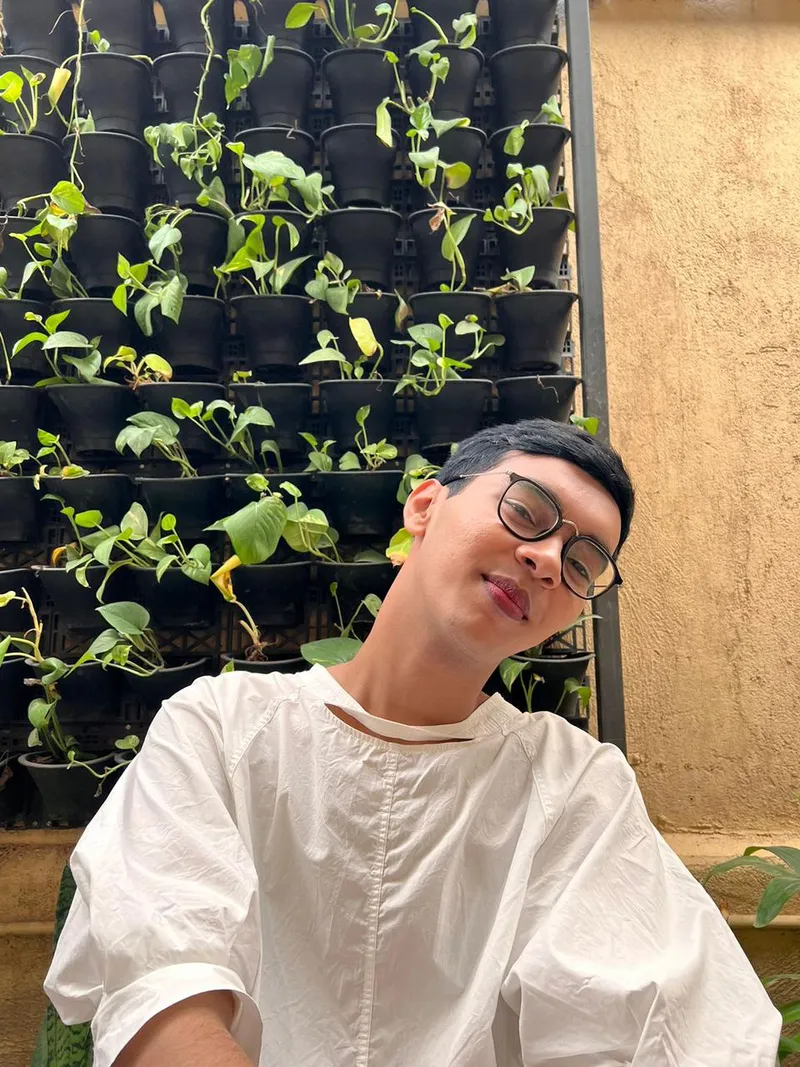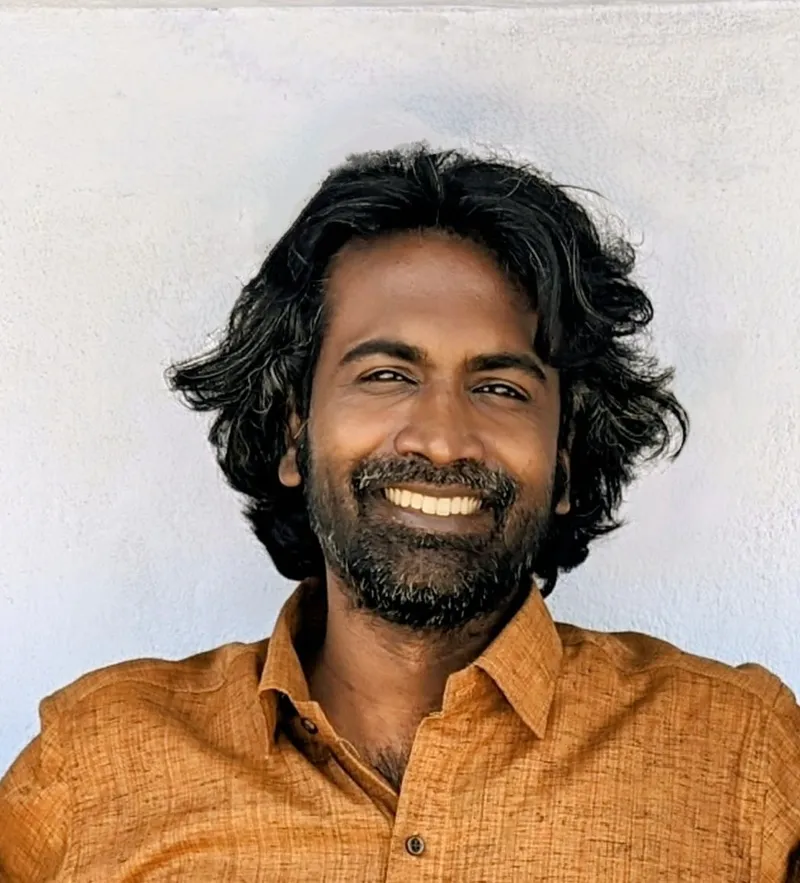Politics matters and is dictating how youngsters choose to love
As Gen-Z and millennials navigate the dating landscape in polarised times, they are weighing in on political views and ideologies before making a choice.
Radhika (name changed on request) has a distinct memory of her family vacations from hometown Chennai to Bhopal where her cousins lived.
During the 22-hour train journey, they ate, played games, sang movie songs raucously, and chatted about everything from sports to soap operas. But the one thing they abstained from in these conversations—with each other and with those around them—was politics.
“If the family sharing our compartment initiated a teatime conversation about a political party and the merits of their governance—a common discussion during long train journeys—we stopped engaging with them,” says the 34-year-old software professional.
For Radhika’s family, this was the best way to avert any conflict arising out of differing political leanings.
This kind of upbringing robbed Radhika of political consciousness as an adult. Years later, when a Tinder date unprecedentedly initiated a conversation about caste and politics, she had nothing to say.
“We had swiped right on each other and allowed our life’s secrets to flow out over one too many shots of whiskey. But we didn’t realise how politically lopsided we were until late that night when we were in bed and he passed a snide remark about the community I belong to.”
Radhika did what she was taught to do all her life: cut him off.
However, the incident left her unsettled as she realised how little she knew about the politics of caste and religion in India. She then took it upon herself to understand the subject better, so that she could have an informed opinion about it.
“I took the effort to study things like supremacy, ways to unlearn it, and how algorithms control political discourse,” says Radhika.
“I did this to be able to hold space for anyone I meet online who may be impacted by these issues in ways I am not,” she reasons.
Politics impacts dating choices
Politics seems to be playing a non-negotiable role in relationships for a significant number of youngsters today, especially in urban settings—impacting everything from short-term dating decisions to long-term commitments.
Along with hobbies, sports, and other shared interests, urban youth are also weighing in on the political ideologies of people they meet before deciding whether to be with them or not.
A recent study by dating app Bumble, across 2,000 Indians aged 18 to 40 from 10 Indian cities, reveals that a sizeable 69% find it important for their potential partner to be aware of current politics. About 20% of them find potential partners not having an opinion on key social and political issues a ‘turn off’ for them, while 15% ended a relationship because of differing political leanings.
Samarpita Samaddar, Communications Director for India and Southeast Asia at Bumble, says that many of Bumble's Gen-Z users are involved—in some way or the other—in human rights advocacy, environmental activism, and other pertinent causes that lend them individuality and accentuate their need for common ground.
Bumble has an optional ‘politics badge’ that allows users to select their political leaning—conservative, liberal or moderate.
“The ‘politics’ badge on the app is a means for our users to find shared interests and priorities, including political leanings,” says Samaddar.
Political is also personal
The evolution of the internet has contributed significantly to framing the political views of urban youth. Social media, in particular, has become a powerful force in contemporary global politics, transforming the way young people engage with it and consume information about political events. Politics is no longer a subject to shy away from, as this demographic feels confident in expressing views on seemingly uncomfortable/touchy topics.
In line with this transformation, people’s expectations of their life partners too have expanded to include political awareness concerning issues that are important to them. They encompass feminism, patriarchy, gender, minority rights, caste, religion and their intersectionalities, and how the role of an administration is affecting them.
Danish Siddique, a young gay man and creative director at an ad agency in Mumbai, grew up in a family that struggled to make ends meet. He also soldiered through years of queerphobia and microaggression to build his career.

Danish Siddiqui, 21, creative director at an ad agency finds men who have absolute allegiance to a political party or a leader less open to understanding the struggles of minority communities.
Siddique is well aware that a dating app is a platform for people from different backgrounds who may not always see things the way he does, but the least he expects from a partner is “the openness to learn and unlearn what they know about important issues concerning minority communities.”
Some men that Siddique meets hold absolute allegiance to a particular political party and are enamoured by a politician rather than their administrative policies.
“I also find these people are rarely open to seeing the nuances of certain policies and how they affect different people differently—the Uttarakhand Uniform Civil Code and what it means to the LGBT community, for instance,” he says.
One’s political ideology may not surface as a point of contention in the initial few dates, but it reveals itself in subsequent meetings—when conversations move towards life, choices and family, says counselling psychologist and expressive arts therapist from Chennai, Sasi Vijayan.
As a Dalit millennial, Vijayan deems it important to make passing mentions of her caste and feminist values in the early stages of a date, just to observe the reactions that these beliefs evoke in the person sitting across her.
Vijayan isn’t necessarily looking for the archetypal left-winger but is interested in someone with the awareness and curiosity to navigate the realities of caste, gender and social justice with her.
“I find this important, because even though I am privileged and well-educated, I am aware of the struggles my ancestors endured. Caste is still a trauma for many, and I wouldn’t want my family to go through it in the long-term because of my relationship,” she says.
In a world where dating is tough and relationships are complex even without bringing politics into the picture, why do political views matter so much to the younger generation?
When you live, work and date in an urban milieu with exposure to information of a certain kind, your dating preferences too—from the very beginning—are subconsciously filtered to let in only those who share common cultural views and preferences with you.
These views and preferences include everything—the music you listen to, the books you read, and the movies you watch.
“In a sense, you feel like you already resonate at many levels with someone who shares these same interests with you,” says Pune-based business analyst Prasanna Venkatesh.
In their research on online dating behaviour, Gregory A. Huber and Neil Malhotra, scholars from Yale and Stanford respectively, call this concept ‘homophily’—the tendency for people to seek out those who share their defining characteristics, such as age, gender, ethnicity, and socioeconomic status. The study also reveals that a large number of partnerships found online are formed over similar political leanings and congruence.
While Venkatesh hit it off instantly with a woman he met on Tinder, over their shared views on gender fluidity, art and philosophy, he hit a roadblock when he came to know of her views on caste and religion.
“Somewhere along the way, she justified the vocational segregation prescribed in the Manu Smriti, and this gave me an immediate window into her politics of caste and religion. It was a no for me,” he says.

Prasanna Venkatesh, a Pune-based business analyst, learned that his date and he shared very different political views only after subsequent meetings with her.
Sometimes, the expectations are not as stark as black and white or right or left. They could be somewhere in between too, and that is why it is crucial to find one’s own voice. While different political leanings are a deal breaker for some, for others, the willingness to listen and learn goes a long way in finding common ground.
It is important to understand that political views are often byproducts of one’s access to the popular subcultures of their times and within the environments they grow up in. Political ideologies can often run very deep into one’s ancestry, family systems, and upbringing.
Finding your own politics is crucial
Studies across the world have shown that the political dynamics on social media have led to extreme polarisation, often compelling users to adopt one particular stance, whether or not they are able to fully embody it in real life.
In her famous analysis on social media and politics, stylist and cultural commentator Ayishat Akanbi criticises social media’s tendency to reduce people’s diverse political views to fit an agenda and box them in labels such as ‘far-right’, ‘left’, ‘centre’, and so on.
One must be aware of this and approach dating and relationships with sensitivity and an open mind, advise experts. It is essential for youngsters to educate themselves thoroughly on the various nuances of a subject and make informed decisions.
“Online, it may seem like people cannot change their ideas because they are encouraged not to, but as people, we have a lot more in common than we do apart,” says Akanbi. ”It is the system we live in that forcefully attempts to group us on our differences,” she says.
Edited by Swetha Kannan






